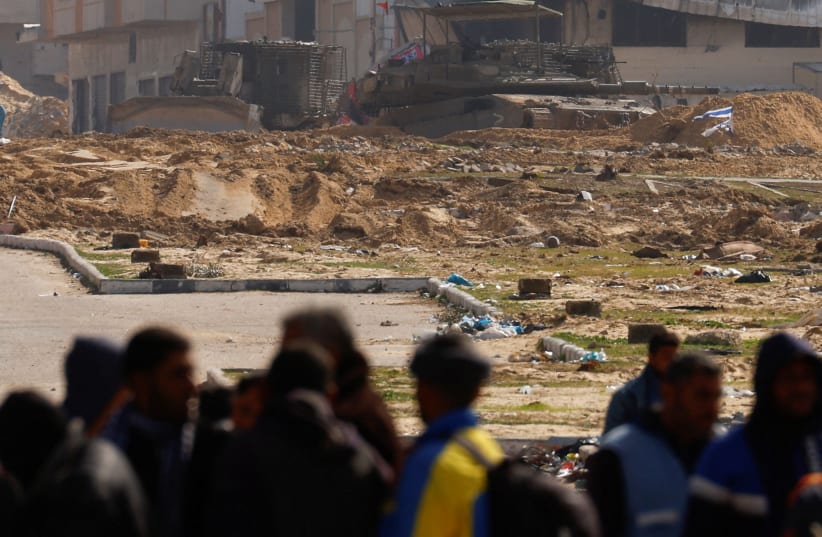The United Nations humanitarian office on Friday voiced concern about the hostilities in Khan Yunis that have forced more people to flee to Rafah in the south of Gaza, describing the border town as a "pressure cooker of despair."
"I want to emphasize our deep concern about the escalation of hostilities in Khan Yunis, which has increased the number of internally displaced people seeking refuge in Rafah in recent days," said Jens Laerke, spokesperson for the United Nations Office for the Coordination of Humanitarian Affairs.
"Thousands of Palestinians have continued to flee to the south, which is already hosting over half the population of some 2.3 million people...Rafah is a pressure cooker of despair, and we fear for what comes next."
Defense Minister Yoav Gallant said on Thursday that success in Khan Yunis, where Israel launched a major ground attack last week, meant its forces could advance to Rafah on Gaza's southern border.
More than half of Gaza's 2.3 million people are sheltering in this area.
"We are achieving our missions in Khan Younis, and we will also reach Rafah and eliminate terror elements that threaten us," Gallant said in a statement.
UNICEF says nearly all Gaza's children require mental health support
UNICEF said on Friday it estimated that 17,000 children in Gaza were unaccompanied or have been separated from their families during the conflict, and that nearly all children in the enclave were thought to require mental health support.
"They present symptoms like extremely high levels of persistent anxiety, and loss of appetite. They can't sleep, they have emotional outbursts or they panic every time they hear a bombing," said Jonathan Crickx, UNICEF's chief of communication for the Occupied Palestinian Territories.
"Before this war, UNICEF was considering that 500,000 children were already in need of mental health and psychosocial support in Gaza. Today, we estimate that almost all children need that support, and that's more than 1 million children."

